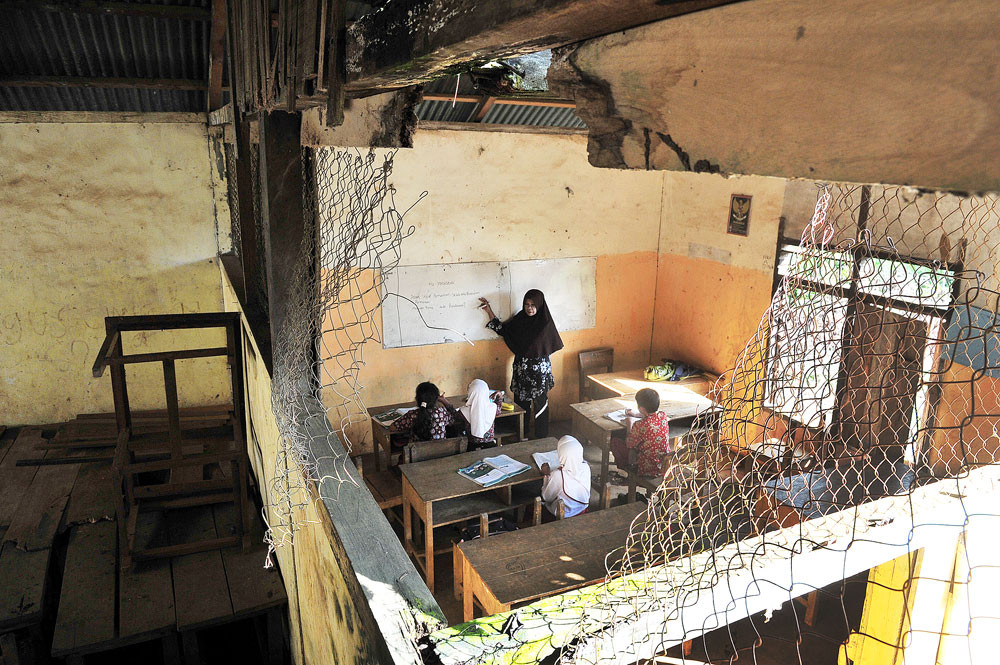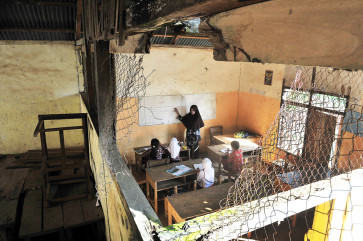Popular Reads
Top Results
Can't find what you're looking for?
View all search resultsPopular Reads
Top Results
Can't find what you're looking for?
View all search resultsImproving effectiveness of education funds
Special supervision and checks and balances by the central government are urgent to measure and monitor the use of the local education budget. Thus local governments would be encouraged to increase integrity in managing education funds.
Change text size
Gift Premium Articles
to Anyone
T
he government’s commitment to increasing education quality is shown by its efforts to increase the education budget. According to the 2019 state budget allocation, the education budget has grown by 13.2 percent or Rp 57.9 trillion (US$4.07 billion) in 2019, indicating efforts to improve public education and reduce the gap of public education quality by increasing funds transferred to local and village funds for education. In 2019, the amount of funds transferred was Rp 308.4 trillion, an increase of Rp 28.9 trillion from 2018.
However, the scholar T. Jasmina has proven that the education budget does not necessarily improve public education at the local levels.
The Research on Improving Systems of Education program by the Smeru Institute found in 2014 that the mathematical abilities of grade 7 students were very low, about 28 percent. The mathematics skills of 12th graders were only 39 percent, whereas the increase after 12 years of schooling was only 13 percent. Worse, at every grade mathematical abilities in 2014 were lower than in 2000.
So why was the education budget ineffective at improving education, especially at the regional level?
First, commitment has been lacking among local governments for allocating 20 percent of their budgets to education, as the Constitution requires. Local governments still rely on the General Allocation Fund and Special Allocation Fund transfers as sources of educational funding. In 2018 only six regencies and one province had allocated 20 percent of their budgets to education.
These were Ogan Komering Ilir in South Sumatra, Pemalang in Central Java, Bogor and Bandung in West Java, Kutai Kartanagera in East Kalimantan, Bangli in Bali and West Sumatra province. Moreover, the percentage of local budgets for education continues to decline.
Second, the capacity of local governments to manage education funds is poor. The funds are largely spent for new classrooms, teacher salaries, administrative and bureaucratic costs.


















